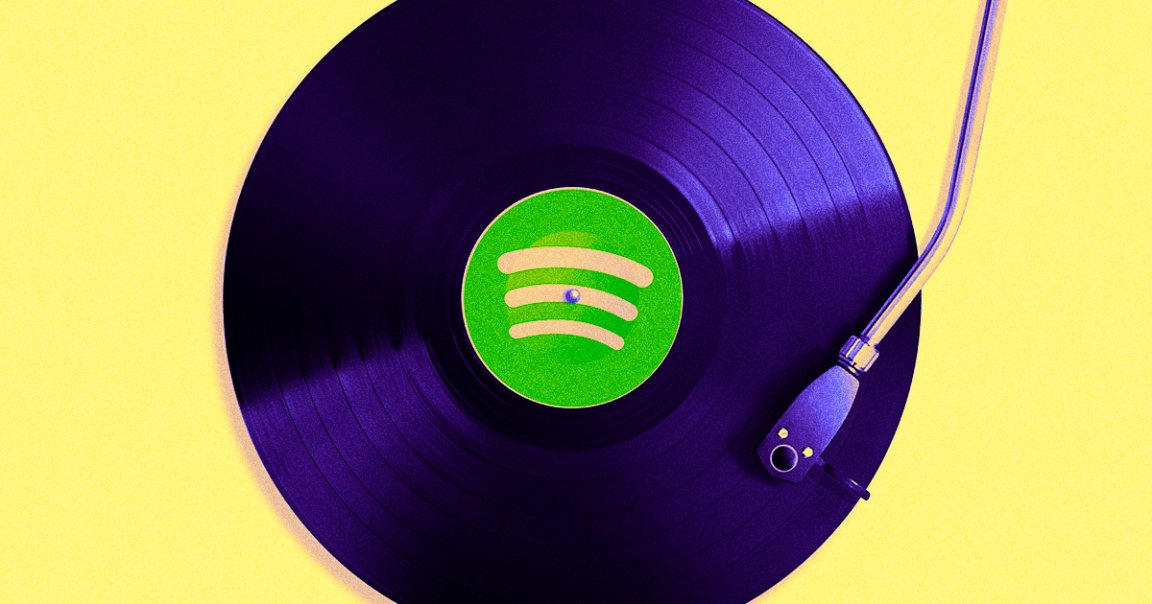
Streaming giant Spotify, arguably a horseman of the distilling-music-into-vibes-only-pocalypse, wants to bring back the radio DJ. They, uh, just don’t want those DJs to be human. More algorithms for all!
The music service just announced that it will soon be leveraging artificial intelligence to provide each user with an individual “AI DJ in your pocket.” You know, because that’s something we’ve all been asking for.
According to TechCrunch, Spotify says the system will share “culturally relevant, accurate pieces of commentary at scale.” In other words: bringing the radio DJ back en masse, but without having to employ humans to do the job.
“If you’re not feeling the vibe, just tap the DJ button and it will switch it up,” reads a Spotify press release explaining the tech. “The more you listen and tell the DJ what you like (and don’t like!), the better its recommendations get.”
“Think of it as the very best of Spotify’s personalization,” it adds, “but as an AI DJ in your pocket.”
Of course, one might argue that Spotify’s inhuman pocket DJ goes directly against everything that a radio DJ has always been: a curator, sure, but a curator who uses their individual human taste and sensibility to bring music to listeners. Spotify’s AI DJ is seemingly the exact opposite, regurgitating — like so many music algorithms do — a listener’s patterns back at them, without any genuine flair (re: human) of its own.
Just another AI cog in the vibe vacuum, baby. But we digress.
Spotify says in the release that the AI DJ is powered by two AI components: a Spotify-owned AI voice generation tool called Sonastic and, most intriguingly, unspecified OpenAI tech. Though it’s unclear what exactly the OpenAI device at hand is, it’s presumably some version of OpenAI’s Large Language Model (LLM), GPT — the same overly confident tech that’s not just constantly wrong about things, but has led to the chaos that is Microsoft’s Bing Chat/Sydney going off the absolute rails.
And look, we’re not hoping that the streamer’s artificial DJ starts spouting believable bullshit about musicians, transforming Mr. Dee-JAI into a PR nightmare. We’re also not hoping that it falls in love with users, suddenly begins to ponder its sentience, or starts to name its enemies, all of which OpenAI’s tech has already done. But it really would be something to behold.
Spotify does claim that it has editors in charge of making sure that the AI provides accurate information, but we’ve heard that tune before. (It’s also unclear how editors might keep up with the program, considering that the AI’s algorithm is allegedly crafting cultural commentary in real-time.)
“The expertise of our editors is something that’s really important to our philosophy at Spotify,” reads the press release. “We have experts in genres who know music and culture inside and out. And no one knows the music scene better than they do.”
“With this generative AI tooling,” it continues, “our editors are able to scale their innate knowledge in ways never before possible.” Glad to see that the “tooling” rebrand is catching on.
And while the Spotify DJ probably won’t have the exact same problems as the interactive Bing AI, there’s another dark reality of GPT tech that’s lurking here: machine bias.
While OpenAI does have some guardrails in place for its products, those guardrails are very far from perfect, and racial, sexist, transphobic, or otherwise terrible biases are certainly embedded into any robust training data — in fact, GPT-powered products have already seen some pretty terrible stuff slip through the cracks. Utilizing a bias-ridden product to make humanless music commentary may ultimately prove to be an unnecessary risk on Spotify’s behalf.
But only time — and maybe, if this thing does follow in the footsteps of OpenAI integrations before it, not that much of it — will tell. In any case, if you’re an English-speaking Spotify user, a DJ should be arriving in your pocket soon.
READ MORE: Spotify launches ‘DJ,’ a new feature offering personalized music with AI-powered commentary [TechCrunch]